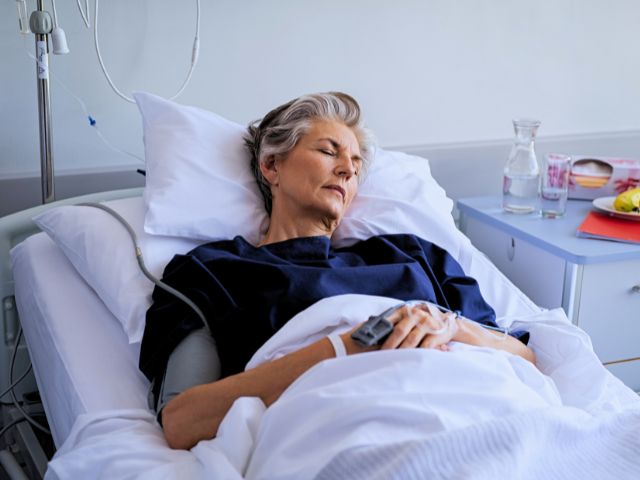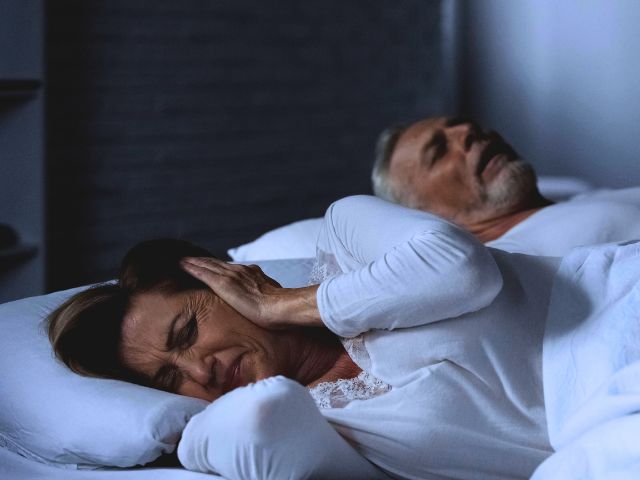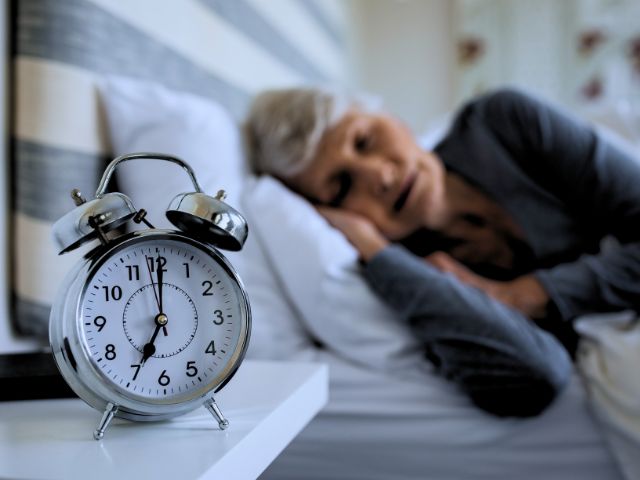Industry News | Inside Scoop Virtual Nursing isn’t New — So Why Does it Feel That Way? Virtual nursing and telemedicine aren’t new concepts. They date back to the 1960s and have related uses in NASA. However, the COVID-19 pandemic brought the concept of virtual...
Improving Sleep Quality in the Elderly
- Learn how aging affects sleep quality and the consequence of poor sleep in a patient’s life.
- Review a list of health conditions that may impact a patient’s sleep quality, especially in elderly patients.
- Lifestyle changes that nurses can promote to their elderly patients to promote better sleep quality.

Katy Luggar-Schmit
LPN
Have you struggled with sleep? Sleep is a vital component of health regardless of age; however, aging adults can be more sensitive to the consequences of inadequate sleep.
Poor sleep quality can wreak havoc in many areas of a patient’s life, affecting alertness, memory, and appetite changes and increasing the risk of falling in the aging adult. Poor sleep also weakens the immune system, increases sensitivity to pain, interferes with blood sugar regulation, and causes diminished muscle strength.

Aging and the Effects of Sleep
It is common for older adults to experience changes in the quality and length of their sleep. Many of these changes occur due to changes in the individual’s circadian rhythms.
Circadian rhythms are twenty-four-hour daily cycles. Circadian rhythms influence when a person gets hungry when the body releases certain hormones, and when a person feels sleepy or alert.
When properly aligned, the circadian rhythm can promote consistent and restorative sleep. However, when the circadian rhythm is thrown off, it can create significant sleep issues.
Light is one of the most powerful cues for maintaining circadian rhythms and many older people have insufficient exposure to daylight. Changes in hormone production, such as melatonin and cortisol, may also disrupt sleep in older adults.
As people age, the body secretes less melatonin, which is normally produced in response to darkness and assists in promoting sleep.
Health Conditions That May Impact the Quality of Sleep
Mental and physical health conditions may also interfere with sleep. Conditions that commonly affect sleep in aging adults include the following:
- Anxiety: Excessive worrying that prevents sleep or disrupts sleep
- Depression: Sadness that disrupts the person’s ability to sleep or disrupts sleep
- Heart disease: Disease that affects the heart or blood vessels
- Diabetes: A disease that results in too much sugar in the blood
- Sleep apnea: Obstructive sleep apnea can cause pauses in breathing during sleep. These pauses are related to the upper airway collapsing or narrowing. Sleep apnea causes interruptions in sleep and can affect oxygen levels in the body, leading to headaches, daytime sleepiness, and difficulty focusing and thinking clearly.
- Restless legs syndrome: This syndrome causes an urge to move the legs while resting or sleeping.
- REM sleep behavior disorder: This affects older adults more often than it does younger adults. This disorder causes people to move while they are dreaming and sleepwalking. While sleepwalking, the person has the possibility of lashing out violently.
- Nocturia: This is also known as nighttime urination, which increases with age due to physical changes in the urinary system.
Complicating sleep further, many older adults are diagnosed with more than one chronic health condition at a time. Those with multiple health conditions are more likely to report getting less than six hours of sleep, having poor sleep quality, and experiencing symptoms of a sleep disorder.

Other Factors That May Affect Sleep Quality In the Elderly
Medication Side Effects
Many older adults take five or more medications, and many of these over-the-counter and prescription medications can contribute to sleep issues. The interaction of multiple medications may also cause unpleasant effects on sleep.
Lifestyle
Retirement may lead to a less structured sleep-wake schedule. Other possible lifestyle changes that may affect sleep are loss of independence and social isolation. Taking naps during the day is another lifestyle habit that can affect the elderly’s quality of sleep at night.
Complicating sleep further, many older adults are diagnosed with more than one chronic health condition at a time. Those with multiple health conditions are more likely to report getting less than six hours of sleep, having poor sleep quality, and experiencing symptoms of a sleep disorder.
Nursing Interventions/Lifestyle Changes to assist with Sleep
- Encourage exercise: Older adults who exercise regularly fall asleep easier, sleep longer, and report better sleep.
- Exposure to daylight: Ensure adequate exposure to daylight while awake to assist in maintaining circadian rhythm cycles.
- Remove or reduce distractions: TV’s, phones, and bright lights can make it more difficult to fall asleep. If possible, remove these items from the room or ensure all electronics and lights are off at bedtime.
- Encourage no eating or drinking too close to bedtime: Doing either of these things right before bed is likely to keep someone awake, whether it is from an upset stomach or having to urinate more often.
- Encourage routine: Since aging can make it more difficult to recover from lost sleep, going to sleep at the same time each night and waking up at the same time each morning will assist in achieving a higher quality of sleep. Ensuring daytime napping is kept to a minimum will also aid in better sleep at night.
- Add melatonin to medication regimen: If the physician thinks it may be appropriate, adding nightly melatonin to the aging adult’s medication regimen may assist in better sleep.
- Ensure comfort: Make sure the patient is comfortable with the temperature of the room and pain levels are well controlled prior to sleep.
Other important safety measures regarding sleep:
- Reduce hazards in the resident’s room: Make sure the floor is clear of any tripping hazards, such as rugs, cords, and furniture.
- Call light access: Make sure they have easy access to their call light so they can quickly ask for help if needed.
- Lights: Ensure there is easy access for them to turn on lights or have motion lights in the room that activate when they get up.
- Bed position: When they are in bed, the bed should be at the lowest possible position to prevent injury from falling out of the bed.

The Bottom Line
In conclusion, the aging adult is more sensitive to the effects of inadequate sleep. It is important that the aging adult can achieve the highest quality of sleep possible.
As nurses, we can initiate interventions to achieve positive outcomes in the quality of sleep these patients need. Achieving a higher quality of sleep will assist the healthcare team in successful management of health conditions that the aging adult may be experiencing and improve their overall health.
Love what you read?
Share our insider knowledge and tips!
Read More

Therapeutic Interventions: A Nurse’s Guide
Inside Scoop Therapeutic Interventions: A Nurse’s Guide Learn common therapeutic interventions nurses can use to support patients in treatment. Understand how to effectively administer medication to patients while keeping them calm and informed. Review...

A Nurse’s Guide to Evidence-Based Practice in Nursing
Inside Scoop A Nurse’s Guide to Evidence-Based Practice in Nursing Understand what occurs when a curious mindset is not present in nursing practices. Identify what happens in nursing care due to a lack of evidence-based practices. Recognize the barriers that...


